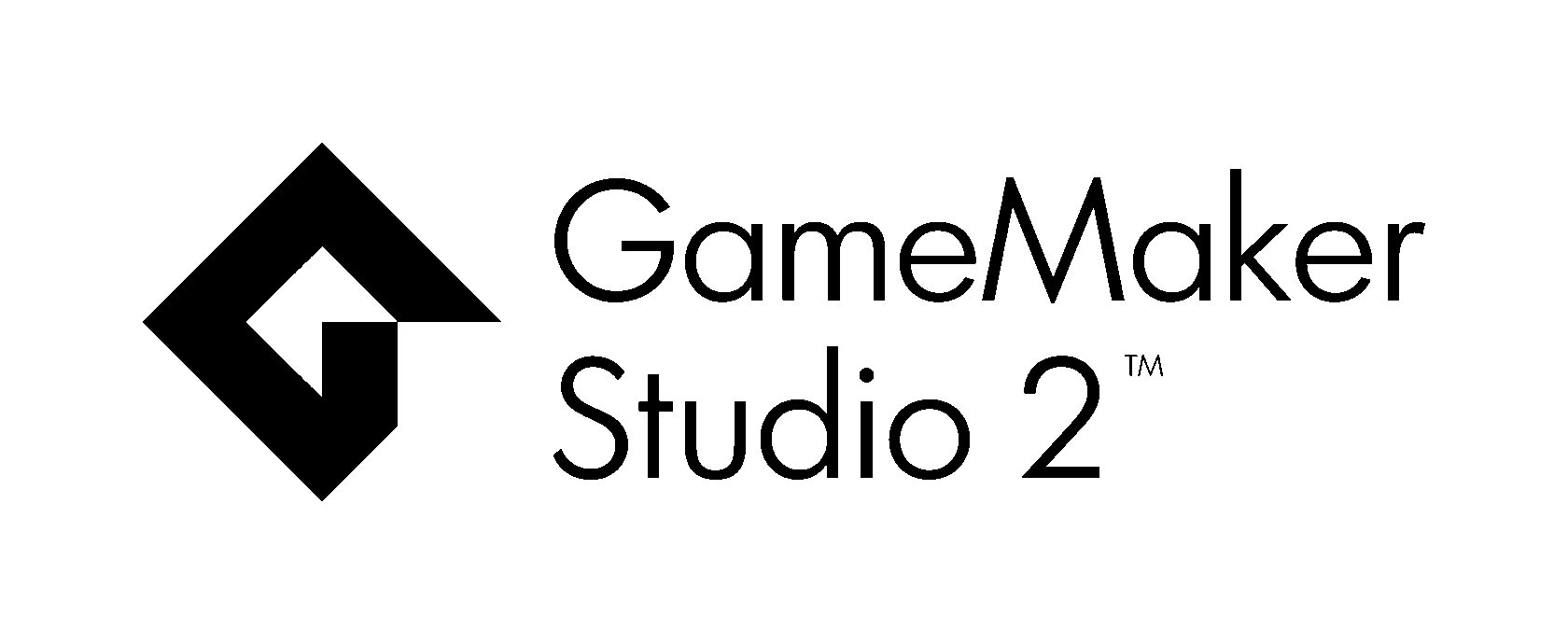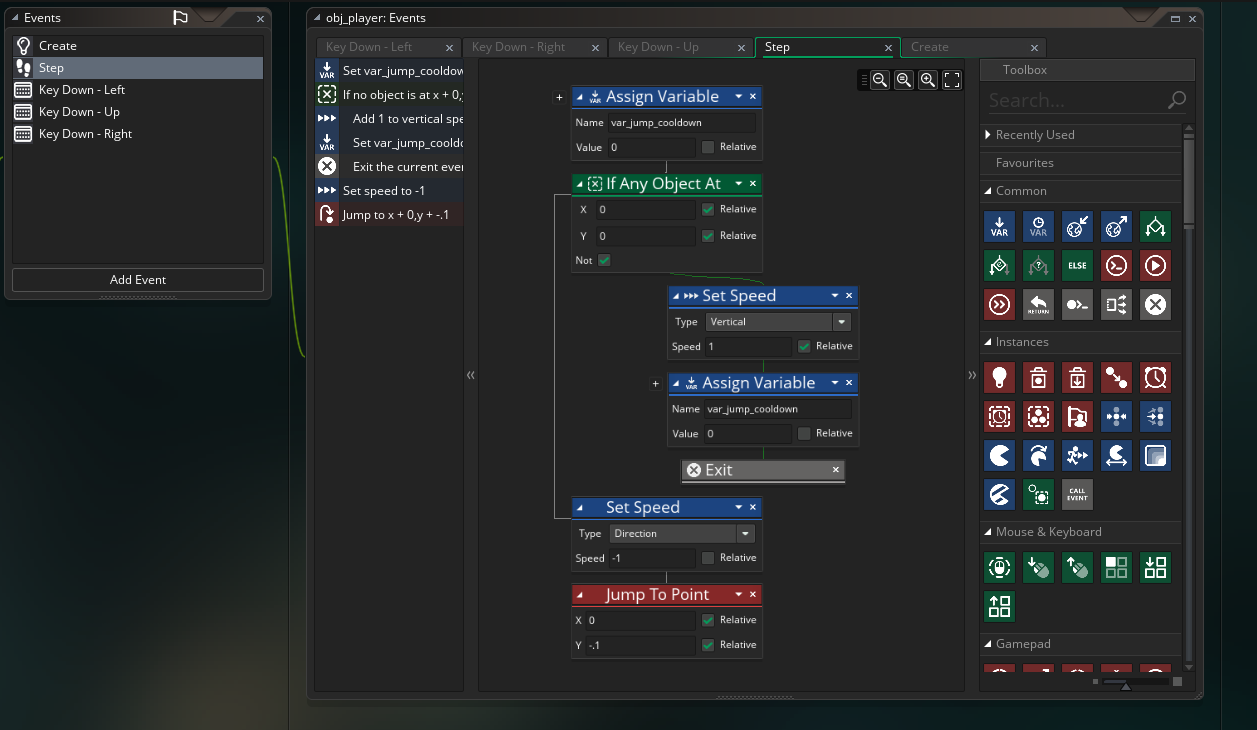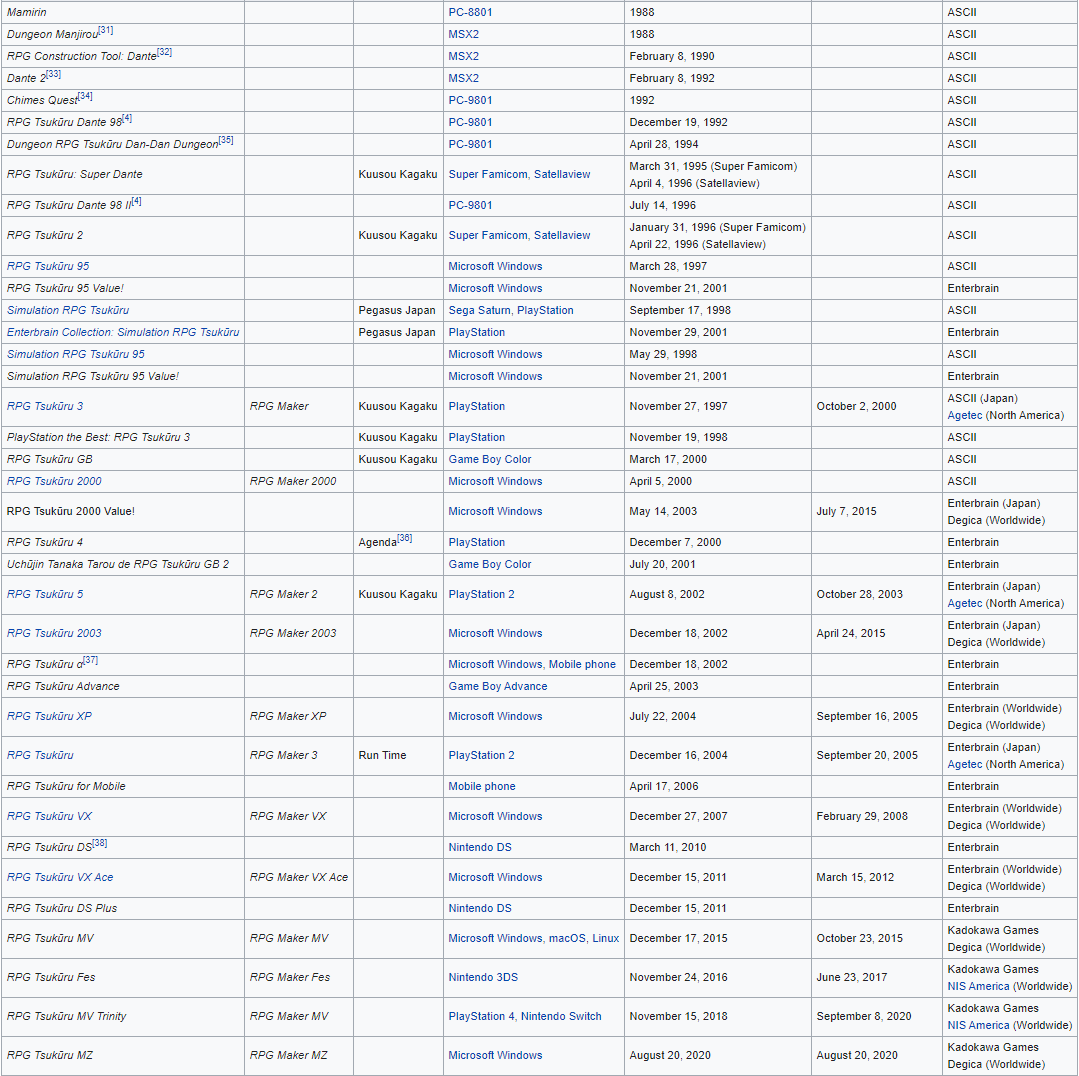13.04.2021
7 game engines that do not require programming skills
You don't have to enroll in a programming course to develop games. Anyone can create a simple quest, a short visual novel, or a small platformer. We have selected 7 game engines and game constructors that will help newcomers to familiarize themselves with game development.

Official website: https://www.yoyogames.com/gamemaker
1. GameMaker Studio 2
It's one of the most popular game engines today. It's fast, cross-platform, beginner-friendly. The official site of the program has dozens of detailed tutorials: from basic to advanced level. Depending on the complexity of the tasks and the skills of the novice developer, there is a choice between two game creation modes:
Game Maker Studio 2 is available on Steam. If you don't want to spend $39 (the price for an annual Mac or PC license of your choice) right away, take advantage of the 30-day trial on the official site.
- Visual Scripting with a drag-and-drop feature. Compose game logic by adjusting the necessary commands with your mouse.
- Game Maker Language is a simplified programming language. If you don't want to learn it, and the visual tools aren't enough to bring your idea to life, just google the problem, copy a piece of code, and paste it in using the instructions you get.
Game Maker Studio 2 is available on Steam. If you don't want to spend $39 (the price for an annual Mac or PC license of your choice) right away, take advantage of the 30-day trial on the official site.


Official website: https://gdevelop-app.com/
2. GDevelop
Free online game constructor for creating 2D games. Web-version allows you to make games remotely from your PC: on the way to work, lying in the bathroom, at a boring party. All you need is the Internet and a device with access to it. The game constructor works with HTML5, which is why the result is uploaded to any website with just a click on the export button. GDevelop game engine is a non-commercial product. It is maintained and distributed by a community of programmers. This leads to numerous bugs and problems with technical support.

Official website: https://www.game-guru.com/
3. GameGuru
GameGuru is an engine and constructor at the same time: everything depends on your skills. The developers take care of their community. Once a week, they hold streams and upload video tutorials on their YouTube channel. Depending on the version and availability of additional features, GameGuru costs from $19.99 to $137. You can test out the game engine for free before you buy the basic or extended version. During this time you will get used to the features:
Without knowledge of the Lua programming language, it's easy to create a simple shooter or platformer on a game engine. Quests, inventory, and other goodies are not available in the basic version. But it has an excellent post effects generator. Despite its simplicity, GameGuru is up to the task and adds atmosphere to the picture in just a couple of clicks.
- Cyrillic is not supported. The only way to add inscriptions in Russian is to attach a picture.
- Layer-by-layer texture mapping.
- No additional loading of elements. A level is loaded, along with all the objects it contains at the same time. If you want to create an open world, prepare for the FPS drop.
- Fairly flexible tool for creating a character model. You can even upload a photo and play as yourself!
- Procedural terrain generation works, but not perfectly. Be prepared to get a satisfactory result on the Nth try.
Without knowledge of the Lua programming language, it's easy to create a simple shooter or platformer on a game engine. Quests, inventory, and other goodies are not available in the basic version. But it has an excellent post effects generator. Despite its simplicity, GameGuru is up to the task and adds atmosphere to the picture in just a couple of clicks.

Official website: https://www.renpy.org/
4. Ren'Py: Visual Novel Engine
With Ren'Py, creating games becomes a seamless Python learning experience. It comes with a tutorial: a simple novel that walks you through the basic commands and how to interact with them. No programming skills are needed here. If you have a basic level of English, the program will teach you how to handle code in a couple of hours. If you want to learn how to program, but have doubts and do not know where to start, Ren'Py: Visual Novel Engine is the perfect tool.
The game engine is only suitable for 2D quests and visual novels. You won't be able to make a new GTA on it because it doesn't have that kind of functionality.
The game engine is only suitable for 2D quests and visual novels. You won't be able to make a new GTA on it because it doesn't have that kind of functionality.

Official website: https://www.adventuregamestudio.co.uk/
5. Adventure Game Studio
If you get nostalgic for the old Point and Click quests, try making your own. Adventure Game Studio is used to remake classic quests from the previous millennium, such as King's Quest from the 80s.
Adventure Game Studio is for true connoisseurs of the genre: the structure of the game engine has not undergone significant changes since 1997. It is completely open for plugins and extensions: download them from GitHub, or create them yourself in the built-in C-like language to add features to your liking. However, this is not necessary. For small projects, the basic version will be fine.
Adventure Game Studio is for true connoisseurs of the genre: the structure of the game engine has not undergone significant changes since 1997. It is completely open for plugins and extensions: download them from GitHub, or create them yourself in the built-in C-like language to add features to your liking. However, this is not necessary. For small projects, the basic version will be fine.

Official website: https://gamesalad.com/
6. Game Salad
Another constructor for casual 2D games, based on the intuitive drag-and-drop method with completely closed-source code. There's no way to extend the functionality with plugins and extensions: you'll have to put up with all the drawbacks.
Game Salad is available for Windows and OSX. The version for the PC is rather buggy, moreover: updates for Mac are more regular and more frequent.
Game Salad is available for Windows and OSX. The version for the PC is rather buggy, moreover: updates for Mac are more regular and more frequent.

Official website: https://www.rpgmakerweb.com/
7. RPG Maker
A series of game engines and builders, beloved by many indie developers for its simplicity, convenience, and friendly community. Since 1988 more than 30 of them were released:

The flexible RPG Maker system is suitable for novice developers and experienced creators alike. Each game project has a database containing everything you need: character and weapon assets, their characteristics, spell lists, skills, weather effects, and enemies.
The player interacts with the world thanks to the events. These are areas of space that interact with the environment at certain triggers. For example:
The engine has been developed specifically for games in the genre of JRPG. This leads to specific graphics and limited features. This is where the community saves the day. On GitHub, on-topic resources, and the search "RPG Maker resources" you can find extensions for every taste: from new models and animations to scripts that radically change the gameplay.
All available engine variants and DLC to them can be found on the official website. The range is huge: there are versions for Nintendo consoles, for PC, simplified, advanced, for novels, and much more...
So, we've looked at 7 game engines and game constructors that aspiring game designers use. Make quick prototypes, get creative, and learn new skills. When you feel you've mastered enough, start exploring other, more complex game engines!
The player interacts with the world thanks to the events. These are areas of space that interact with the environment at certain triggers. For example:
- The player stands on a tile and is transported to another location.
- The quest is completed when a certain item is found.
- After the battle, it starts to rain.
The engine has been developed specifically for games in the genre of JRPG. This leads to specific graphics and limited features. This is where the community saves the day. On GitHub, on-topic resources, and the search "RPG Maker resources" you can find extensions for every taste: from new models and animations to scripts that radically change the gameplay.
All available engine variants and DLC to them can be found on the official website. The range is huge: there are versions for Nintendo consoles, for PC, simplified, advanced, for novels, and much more...
So, we've looked at 7 game engines and game constructors that aspiring game designers use. Make quick prototypes, get creative, and learn new skills. When you feel you've mastered enough, start exploring other, more complex game engines!
